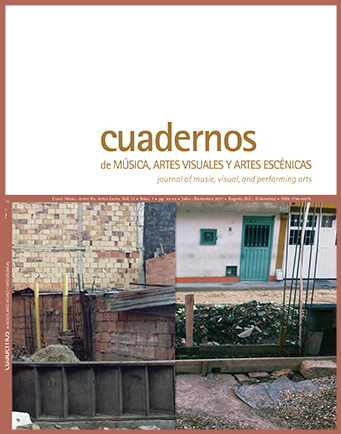Abstract
El arte intercultural y la antropología comparten un interés por estudiar y representar culturas diferentes de la propia. Estas prácticas implican la determinación de un Otro y la construcción de un conocimiento sobre él, dos operaciones que desde una perspectiva posestructuralista implican un ejercicio de poder. Partiendo de estas relaciones, el artículo revisa algunos conceptos y estrategias fundamentales de la antropología para construie un marco teórico que permita discutir sobre temas como lo universal y lo particular, la apropiación y la trasposición de manifestaciones culturales, el exotismo, las relaciones interpersonales en la interculturalidad y la decolonización. Para esto, tomaré como ejemplo principal el trabajo de Eugenio Barba y el Odin Teatret, y culminaré con una experiencia personal de creación escénica. Más que establecer una ética de la representación intercultural, el artículo tiene el objetivo de plantear preguntas y señalar aspectos que puedan nutrir y motivar reflexiones éticas sobre la representación intercultural en las artes escénicas
This journal is registered under a Creative Commons Attribution 4.0 International Public License. Thus, this work may be reproduced, distributed, and publicly shared in digital format, as long as the names of the authors and Pontificia Universidad Javeriana are acknowledged. Others are allowed to quote, adapt, transform, auto-archive, republish, and create based on this material, for any purpose, provided the authorship is duly acknowledged, a link to the original work is provided, and it is specified if changes have been made. Pontificia Universidad Javeriana does not hold the rights of published works and the authors are solely responsible for the contents of their works; they keep the moral, intellectual, privacy, and publicity rights.
Approving the intervention of the work (review, copy-editing, translation, layout) and the following outreach, are granted through an use license and not through an assignment of rights. This means the journal and Pontificia Universidad Javeriana cannot be held responsible for any ethical malpractice by the authors. As a consequence of the protection granted by the use license, the journal is able to publish retractions or to correct information already published. Publishing contents in this journal does not generate royalties for contributors.


